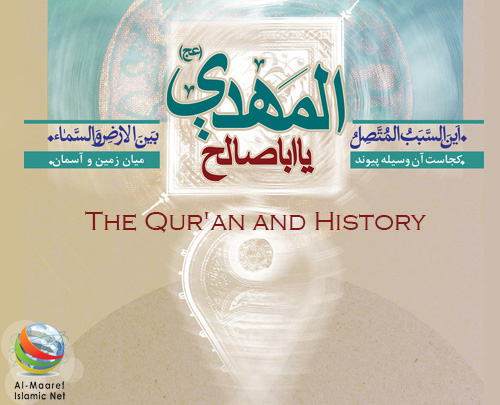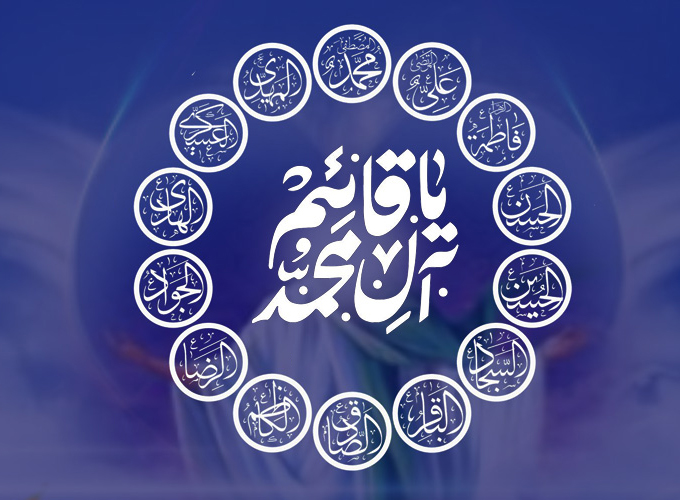The expectation of solace, which forms the subject of the present study, is a
question which is philosophical and social as well as religious and Islamic. As
mentioned earlier, it has a Qur'anic basis. Hence, before an attempt is made to
describe the nature of this expectation, it will be in the fitness of things to
throw some light on the Qur'anic view regarding society and the ever-changing
course of its life i.e. history.
It is undeniable that the holy Qur'an looks at history as a lesson, a precept, a
source of knowledge and a subject worth contemplation and deep thinking. Now the
big question is whether the Qur'an looks at history from an individual angle or
a collective one; whether it puts forth only the life of the individuals for
persuading others to emulate the example of the good and to abstain from the
ways of the wicked, or it has an eye only on the collective life, or at least on
the collective life too. In the latter case, is it possible to infer from the
Qur'an that the society, as distinct from the individuals, has a personality, a
life and even consciousness and feelings? Similarly, is it possible to deduce
that groups and nations are governed by definite rules which are equally
applicable to all of them?
Due to lack of space it is not possible here to discuss these questions in
detail, but it may be stated briefly that the answer to all three questions is
in the affirmative.1
The holy Qur'an, while relating the stories of the past for the purpose of
reflection and instruction, puts forth the life of the past nations as an
admonishing material for the benefit of other people:
﴾That nation is gone. They have reaped what they sowed, and the same
applies to you. You are not responsible for their deeds. You are responsible for
your deeds only﴿.
(Surah al-Baqarah 2:134-141)
The holy Qur'an repeatedly refers to the subject of the existence of the nations
and their duration. For example,
﴾Every nation can only live for an appointed time. When its term ends,
it will not remain (alive) even for a single hour, nor will they die before the
appointed time.﴿
(Surah al A'raf 7:34 and Surah al-Nahl 16:61)
It emphatically refutes the idea that destiny can in any way be affected by the
blind forces of fate. It clearly states that the destiny of nations is subject
to and governed only by the firm and consistent laws of nature. It says
﴾Are they waiting for the punishment which has been the lot of the
earlier people. You will not find any change in Allah's way (of dealing with
such people).﴿
(Surah al Fatir 35:43)
It also draws attention to a point which is of vital importance. It points out
that the people, by looking at their deeds and behaviour, can find out for
themselves whether a good or a bad destiny awaits them, for the forces which
determine the destiny are just a sequence of reactions set in motion by their
own deeds. In other words, particular acts are always and invariably followed by
particular reactions.
Thus, though the course of history is ordained by the Divine Will, the role of
man as a free agent is not eliminated. There are many passages in the Qur'an
which refer to this subject. We quote just one verse here.
﴾Surely Allah does not change the condition of a people unless and
until they change their own conduct, behaviour, customs and manners.﴿
(Surah al-R'ad 13:11).
* The Awaited Saviour. By: Ayatullah Sayyid Muhammad Baqir As-Sadr. Ayatullah Murtadha Mutahhari.
1. See Allamah Sayyid Muhammad Husayn Tabataba'i, Tafsir al-Mizan (vol. 4, p. 102 - vol. 7, p. 333 - vol. 8, p. 85 - vol. 10, pp. 71 to 73 and vol. 18, p. 191)

















